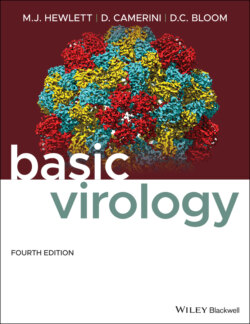Читать книгу Basic Virology - Martinez J. Hewlett - Страница 24
Viruses have a constructive as well as destructive impact on society
ОглавлениеOften the media and some politicians would have us believe that infectious diseases and viruses are unremitting evils, but to quote Sportin’ Life in Gershwin's Porgy and Bess, this “ain't necessarily so.” Without the impact of infectious disease, it is unlikely that our increasingly profound understanding of biology would have progressed as it has. As already noted, much of our understanding of the mechanisms of biological processes is based in part or in whole on research carried out on viruses. It is true that unvarnished human curiosity has provided an understanding of many of the basic patterns used to classify organisms and fostered Darwin's intellectual triumph in describing the basis for modern evolutionary theory in his Origin of Species. Still, focused investigation on the microscopic world of pathogens needed the spur of medical necessity. The great names of European microbiology of the nineteenth and early twentieth centuries – Pasteur, Koch, Ehrlich, Fleming, and their associates (who did much of the work with which their mentors are credited) – were all medical microbiologists. Most of the justification for today's burgeoning biotechnology industry and research establishment is medical or economic.
Today, we see the promise of adapting many of the basic biochemical processes encoded by viruses to our own ends. Exploitation of viral diseases of animal and plant pests may provide a useful and regulated means of controlling such pests. While the effect was only temporary and had some disastrous consequences in Europe, the introduction of myxoma virus – a pathogen of South American lagomorphs (rabbits and their relatives) – had a positive role in limiting the predations of European rabbits in Australia. Study of the adaptation dynamics of this disease to the rabbit population in Australia taught much about the co‐adaptation of host and parasite.
The exquisite cellular specificity of virus infection is being adapted to generate biological tools for moving therapeutic and palliative genes into cells and organs of individuals with genetic and degenerative diseases. Modifications of virus‐encoded proteins and the genetic manipulation of viral genomes are being exploited to provide new and (hopefully) highly specific prophylactic vaccines as well as other therapeutic agents. The list increases monthly.
